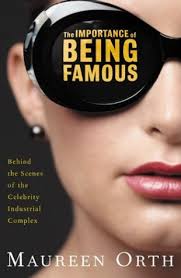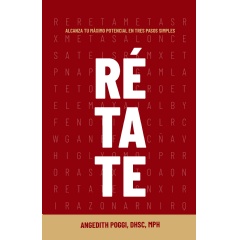How many more reporters informed, or were informed?
How many more reporters will sing to Fitzgerald and the Grand Jury choir?
So far only the NYT's Judy Miller is not warbling. No canary is she.
THE NEW YORK TIMES: July 28, 2005
Case of C.I.A. Officer's Leaked Identity Takes New Turn
By DOUGLAS JEHL
WASHINGTON, July 26 - In the same week in July 2003 in which Bush administration officials told a syndicated columnist and a Time magazine reporter that a C.I.A. officer had initiated her husband's mission to Niger, an administration official provided a Washington Post reporter with a similar account.
The first two episodes, involving the columnist Robert D. Novak and the reporter Matthew Cooper, have become the subjects of intense scrutiny in recent weeks. But little attention has been paid to what The Post reporter, Walter Pincus, has recently described as a separate exchange on July 12, 2003.
In that exchange, Mr. Pincus says, "an administration official, who was talking to me confidentially about a matter involving alleged Iraqi nuclear activities, veered off the precise matter we were discussing and told me that the White House had not paid attention" to the trip to Niger by Joseph C. Wilson IV "because it was a boondoggle arranged by his wife, an analyst with the agency who was working on weapons of mass destruction."
Mr. Wilson traveled to Niger in 2002 at the request of the C.I.A. to look into reports about Iraqi efforts to buy nuclear materials. He later accused the administration of twisting intelligence about the nuclear ambitions of Iraq, prompting an angry response from the White House.
Mr. Pincus did not write about the exchange with the administration official until October 2003, and The Washington Post itself has since reported little about it. The newspaper's most recent story was a 737-word account last Sept. 16, in which the newspaper reported that Mr. Pincus had testified the previous day about the matter, but only after his confidential source had first "revealed his or her identity" to Mr. Fitzgerald, the special counsel conducting the C.I.A. leak inquiry.
Mr. Pincus has not identified his source to the public. But a review of Mr. Pincus's own accounts and those of other people with detailed knowledge of the case strongly suggest that his source was neither Karl Rove, Mr. Bush's top political adviser, nor I. Lewis Libby, the chief of staff to Vice President Dick Cheney, and was in fact a third administration official whose identity has not yet been publicly disclosed.
Mr. Pincus's most recent account, in the current issue of Nieman Reports, a journal of the Nieman Foundation, makes clear that his source had volunteered the information to him, something that people close to both Mr. Rove and Mr. Libby have said they did not do in their conversations with reporters.
Mr. Pincus has said he will not identify his source until the source does so. But his account and those provided by other reporters sought out by Mr. Fitzgerald in connection with the case provide a fresh window into the cast of individuals other than Mr. Rove and Mr. Libby who discussed Ms. Wilson with reporters.
In addition to Mr. Pincus, the reporters known to have been pursued by the special prosecutor include Mr. Novak, whose column of July 14, 2003, was the first to identify Ms. Wilson, by her maiden name, Valerie Plame; Mr. Cooper, who testified before a grand jury on the matter earlier this month; Tim Russert, the Washington bureau chief of NBC News, and who was interviewed by the prosecutor last year; Glenn Kessler, a diplomatic reporter for The Post, who was also interviewed last year, and Judith Miller of The New York Times, who is now in jail for refusing to testify about the matter. It is not known whether Mr. Novak has testified or been interviewed on the matter.
Both Mr. Pincus, who covers intelligence matters for The Post, and Mr. Russert have continued to report on the investigation after being interviewed by Mr. Fitzgerald about their conversations with government officials.
Mr. Pincus wrote in the Nieman Reports article that he had agreed to answer questions from Mr. Fitzgerald last fall about his July 12, 2003, conversation only after "it turned out that my source, whom I still cannot identify publicly, had in fact disclosed to the prosecutor that he was my source, and he talked to the prosecutor about our conversation."
In identifying Ms. Wilson and her role, Mr. Novak attributed that account to two senior Bush administration officials. One of those officials was Mr. Rove, the deputy White House chief of staff, according to people close to Mr. Rove, who have said he merely confirmed information that Mr. Novak already had.
But the identity of Mr. Novak's original source, whom he has described as "no partisan gunslinger," remains unknown.
Mr. Cooper of Time magazine, who wrote about the matter several days after Mr. Novak's column appeared, has written and said publicly that he told a grand jury that Mr. Libby and Mr. Rove were among his sources. But Mr. Cooper has also said that there may have been others.
Ms. Miller never wrote a story about the matter. She has refused to testify in response to a court order directing her to testify in response to a subpoena from Mr. Fitzgerald seeking her testimony about a conversation with a specified government official between June 6, 2003, and June 13, 2003.
During that period, Ms. Miller was working primarily from the Washington bureau of The Times, reporting to Jill Abramson, who was the Washington bureau chief at the time, and was assigned to report for an article published July 20, 2003, about Iraq and the hunt for unconventional weapons, according to Ms. Abramson, who is now managing editor of The Times.
In e-mail messages this week, Bill Keller, the executive editor of The New York Times, and George Freeman, an assistant general counsel of the newspaper, declined to address written questions about whether Ms. Miller was assigned to report about Mr. Wilson's trip, whether she tried to write a story about it, or whether she ever told editors or colleagues at the newspaper that she had obtained information about the role played by Ms. Wilson.
The four reporters known to have been interviewed by Mr. Fitzgerald or to have appeared before the grand jury have said that they did so after receiving explicit permission from their sources, most notably Mr. Libby, who was the subject of the interviews involving Mr. Russert, Mr. Kessler, Mr. Pincus and Mr. Cooper. They have declined to elaborate on their statements, citing Mr. Fitzgerald's request that they and others not speak publicly about the matter.
Mr. Russert, Mr. Kessler and Mr. Pincus have indicated in statements released by their news organizations that their conversations with Mr. Libby were not about Ms. Wilson.
In his article in the Summer 2005 issue of Nieman Reports, Mr. Pincus wrote that he did not write about Ms. Wilson when he first heard the account "because I did not believe it true that she had arranged" Mr. Wilson's trip.
Mr. Pincus first disclosed the July 12, 2003, conversation with an administration official in an Oct. 12, 2003, article in The Washington Post, but did not mention in that article that he himself had been the recipient of the information. He wrote in Nieman Reports that he did not believe the person who spoke to him was committing a criminal act, but only practicing damage control by trying to get him to write about Mr. Wilson.
David Johnston and Richard W. Stevenson contributed reporting for this article.











No comments:
Post a Comment